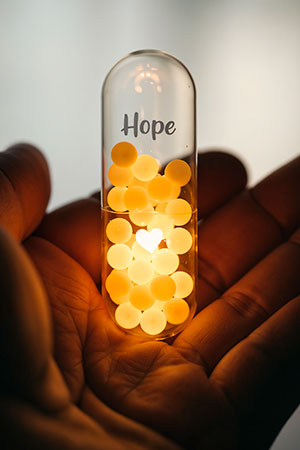
A specific question comes up in nearly every initial therapy consultation, though it’s rarely asked directly: “Can I get better without medication?” People dance around it, test the waters with comments about “preferring natural approaches” or mentioning they’ve “heard mixed things about psychiatric medication.”
What they really want to know is whether healing is possible through therapy alone. It’s a completely understandable concern, yet many people feel awkward bringing it up, as if asking somehow makes them difficult or non-compliant patients.
The hesitation makes sense. Psychiatric medication carries stigma in our culture, and the decision involves complex personal, cultural, and medical considerations. Some people worry about side effects, while others have concerns about dependency. Many simply want to explore all their options before making that choice.
The truth is that healing without medication is not only possible for many conditions, but it’s often the preferred approach depending on your specific circumstances and preferences.
When Medication Becomes Essential
Some mental health conditions benefit significantly from medication, particularly when symptoms are severe enough to interfere with safety or basic functioning. Bipolar disorder often requires pharmaceutical intervention to manage extreme mood swings. Schizophrenia typically needs medication to address psychotic symptoms.
Severe major depression, especially when accompanied by suicidal thoughts, usually benefits from medication to stabilize brain chemistry before other interventions can be effective.
When someone is experiencing suicidal ideation, psychosis, or extreme mood instability, medication can provide the neurochemical stability needed to engage meaningfully in therapy. Psychiatric medications serve as a stabilizing force to create enough mental clarity and emotional regulation for other treatments to take hold.
Severe anxiety that prevents someone from leaving their house or panic attacks that interfere with work and relationships may also benefit from pharmaceutical support. The goal isn’t necessarily long-term medication use, though for some people it becomes a valuable ongoing tool.
Rather, medication can provide enough symptom relief to allow full participation in therapy and implementation of coping strategies.
Where Therapy Can Stand Alone
For many other conditions, however, non-pharmaceutical intervention proves highly effective.
People with mild to moderate depression often see significant improvement through talk therapy alone. Most anxiety disorders respond well to therapeutic methods.
Post-traumatic stress frequently improves through specific therapeutic techniques without requiring pharmaceutical intervention. The key difference lies in how therapy addresses underlying causes rather than just managing symptoms.
While medication primarily regulates brain chemistry, therapy helps you understand and change the thought patterns that contribute to your difficulties. It also addresses behaviors and emotional responses that may be maintaining your struggles. This approach develops skills you can use for the rest of your life, long after treatment ends. Research indicates that certain therapeutic methods match pharmaceutical effectiveness for many conditions.
Cognitive behavioral therapy has strong evidence for treating depression and anxiety disorders. The skills learned often create lasting change that extends well beyond the treatment period.
Many people find that therapy helps them develop a different relationship with their emotions and experiences. Instead of viewing anxiety or sadness as something to eliminate, they learn to understand these feelings as information and develop healthy ways to respond to them.
The therapeutic process itself can be life-changing. Having a safe space to explore your experiences, understand your patterns, and practice new ways of thinking creates changes that go far beyond symptom reduction.
The Power of Alternative Approaches
Non-pharmaceutical treatments have evolved significantly and offer multiple pathways to healing.
Cognitive behavioral therapy helps identify and change the thought patterns that contribute to depression and anxiety. Research shows that CBT achieved 58 percent remission rates for anxiety and depression in older adults over a 10-year period, with significantly lower relapse rates compared to other interventions.
Mindfulness-based interventions teach you to observe your thoughts and emotions without being overwhelmed by them. For trauma-related concerns, somatic therapies and EMDR focus on the mind-body connection, helping address trauma that gets stored physically.
Beyond formal therapy, lifestyle changes play a significant role in mental wellness. Regular exercise has been shown to be as effective as antidepressants for mild to moderate depression, while quality sleep and nutritious eating provide the foundation your brain needs to heal.
Creative interventions like art and music provide outlets for emotions that are difficult to express in words. Group therapy offers connection and the realization that you’re not alone in your struggles.
These methods work by helping you develop skills and create lasting changes that support long-term wellbeing.
Making the Right Choice for Your Journey
Deciding whether to pursue healing with or without medication involves weighing several important factors. The severity of your current symptoms plays a significant role in this decision.
Personal preferences based on your values and beliefs about treatment also influence the choice. The strength of your support system may affect how well you can navigate treatment without pharmaceutical support. Having family members or friends who understand and encourage your healing can make therapy-only approaches more sustainable.
Consider your current level of functioning. Are you able to work? Can you maintain relationships? Are you taking care of basic needs?
If symptoms are severely impacting these areas, medication might help create the stability needed for other approaches to work effectively. Your treatment goals also matter when making this decision. If you’re looking for quick symptom relief, medication might provide faster results. If you’re more interested in understanding your patterns and developing long-term coping skills, therapy alone might align better with your objectives.
Working with Your Treatment Team
Past experiences with treatment can significantly influence your preferences. Some people have had challenging experiences with psychiatric medications, while others have found them incredibly beneficial.

Some prefer developing internal coping skills, while others appreciate the support that medication can provide. Working with mental health professionals who respect your preferences is crucial.
A good therapist or psychiatrist will explore your feelings about medication openly and help you weigh the options based on your specific situation. They should never pressure you into a decision you’re not comfortable with, nor should they dismiss your concerns.
Remember, your choice isn’t set in stone.
You might start with therapy alone and later decide medication could be helpful, or begin with both interventions and eventually transition to therapy only. Mental health treatment should remain flexible and responsive to your changing needs and circumstances. Monitoring your progress over time becomes essential regardless of which path you choose.
If you’re not seeing improvement after giving therapy a genuine effort, it might be worth exploring other options, including medication.
What matters most is finding the approach that feels right for you and working with professionals who honor your autonomy while providing expert guidance. At River House Wellness, we believe in meeting you exactly where you are in your healing process.
We work collaboratively to develop treatment plans that align with your values and preferences, whether that involves therapy alone, medication support, or a combination of interventions. If you’re ready to explore your options or have questions about treatment approaches, we’re here to listen and support you.
Contact River House Wellness at (772) 291-0785 or hello@riverhousewellness.com to see how treatment can benefit you.



